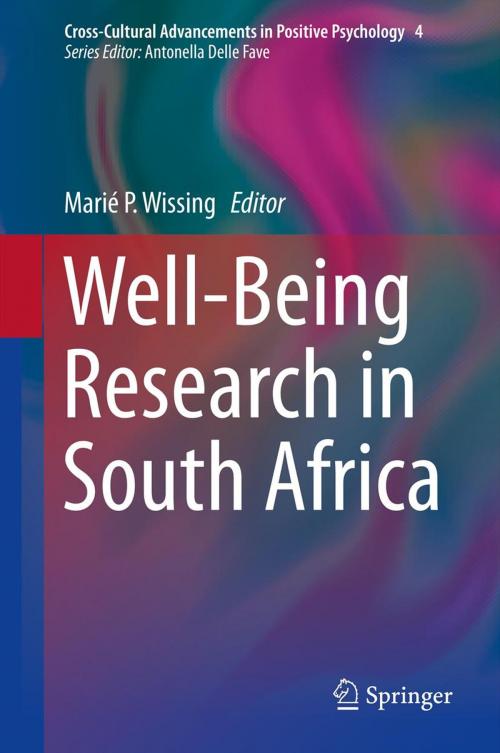Well-Being Research in South Africa
Nonfiction, Health & Well Being, Psychology, Social Psychology, Social & Cultural Studies, Social Science, Sociology| Author: | ISBN: | 9789400763685 | |
| Publisher: | Springer Netherlands | Publication: | May 13, 2013 |
| Imprint: | Springer | Language: | English |
| Author: | |
| ISBN: | 9789400763685 |
| Publisher: | Springer Netherlands |
| Publication: | May 13, 2013 |
| Imprint: | Springer |
| Language: | English |
This is the first book to bring together examples of research in positive psychology / psychofortology conducted in the multi-cultural South African context with its diverse populations and settings. The volume reflects basic as well as applied well-being research in the multicultural South African context, as conducted in various contexts and with a variety of methods and foci. Theoretical, review, and empirical research contributions are made, reflecting positivist to constructivist approaches, and include quantitative, qualitative, and mixed-method approaches. Some findings support universality assumptions, but others uncovered unique cultural patterns. Chapters report on well-being research conducted in the domains of education, work, health, and family, and in clinical, urban vs. rural, and unicultural vs. multicultural contexts. Studies span the well-being of adolescents, adults, and older people, and topics include resilience in individuals, families, and groups, measurement issues and coping processes, the role of personal and contextual variables, and facets such as hope, spirituality, self-regulation, and interventions.
This is the first book to bring together examples of research in positive psychology / psychofortology conducted in the multi-cultural South African context with its diverse populations and settings. The volume reflects basic as well as applied well-being research in the multicultural South African context, as conducted in various contexts and with a variety of methods and foci. Theoretical, review, and empirical research contributions are made, reflecting positivist to constructivist approaches, and include quantitative, qualitative, and mixed-method approaches. Some findings support universality assumptions, but others uncovered unique cultural patterns. Chapters report on well-being research conducted in the domains of education, work, health, and family, and in clinical, urban vs. rural, and unicultural vs. multicultural contexts. Studies span the well-being of adolescents, adults, and older people, and topics include resilience in individuals, families, and groups, measurement issues and coping processes, the role of personal and contextual variables, and facets such as hope, spirituality, self-regulation, and interventions.















